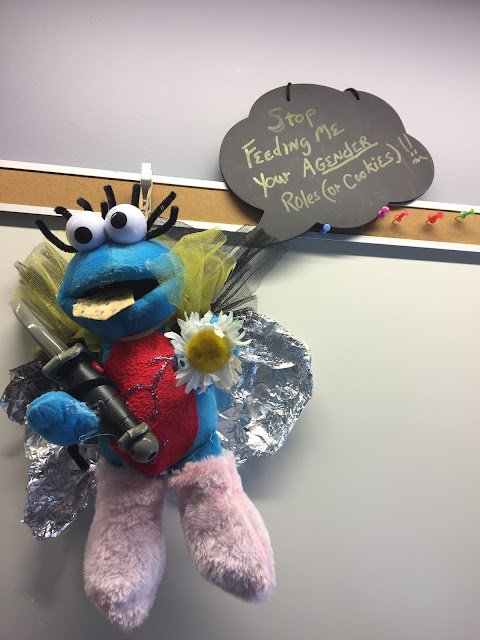Blog #3
I enjoyed Boyd thoughts and position on the “digital native” because it not only discussed important key points, but I believe that it also helped me understand why I couldn’t commit to being “digital native” or “digital immigrant” in my previous post.
According to Prensky I fall into the “digital native” category being born after 1980, but I still don’t feel that way. Yes I can easily navigate the web, prefer graphics to standard simple text, and grew up in the ‘right’ decade, but I still believe that I straddle both digital labels because despite all my tech fluency I still do not understand HOW my computer actually works. That is why I go running to the school IT teacher when I click too fast and accidentally download something that I believe to be detrimental to my computer (OMG! Is it a virus!?!). Boyd said,“[t]echnical skills are increasingly important. Few teens have a basic understanding of how the computer systems they use every day work.” If teens are the digitally fluent or the digital natives, why are the majority of them in the same position as me when it comes to understanding the seemingly ‘basics’ of technology? Boyd explains the reason is because companies have made it much easier to use the internet to create or produce content. I liked the MySpace example, early tech-savvy users were able to personalize their social media pages through a coding process loophole. Myspace noticed this and then made it easier to customize their pages using a simplified interface for all to use. Myspace may have been one of the first websites to do such simplifying, but it wasn’t the last. Now you can create a personal website on Wix or Site Builder without even knowing what coding is. While this simplified way of creating allows for the masses to create content that otherwise wouldn’t be created, Boyd seems to take issue with this, “ [w]hen technologies are designed to make everyday use as easy as possible, it is not necessary for users to learn the technical skills that early internet adoption required”. I believe for this reason I still cannot call myself technologically fluent (I may have commitment issues, but I’ll save that for a later post).
Another issue that Boyd brings up is that the term, “‘digital natives,’ [is] far from being useful, is often a distraction to understanding the challenges that youth face in a networked world.” It is easy for teachers like myself to just assume that my students know more about computers than myself (some do!) but that does not mean that they understand what is biased or even untrue. In a world of FAKE NEWS and ALTERNATE FACTS I agree with Boyd about the importance of teaching students to read content critically and understand how to spot bias within an article. While teenagers and ‘digital natives’ may be able to Snapchat and Instagram with ease, it is my job as an educator to show them how to use the technology they grew up with can be used to gain literacy and new knowledge if used correctly and read critically.
PS. The awesome librarian @ our high school collaborated with the ESL department to create a cool lesson plan. Check it out



I completely agree with your assessment of Boyd's thoughts on Prensky's term 'digital native', it is too narrow. Pinpointing one as a native because of a particular birthday is ludicrous as you have noted.
ReplyDeleteDigital native or digital immigrant or not, from where I sit, you are a digital genius! I love your post! I like the way you connected to the text. I also enjoy your illustrations (I definitely need to learn how to do that.). By the way, your librarian is completely awesome.
Thank you Sheila,
DeleteI'm blushing, thank you. I will show you how to include illustrations tomorrow. I learned because i guess i have a "twitch' complex. HA!
I agree - I'm a digital native too! According to Prensky, my ability to move at "twitch speed" can cause me to be TOO confident with technology. I believe that this can be a pro and a con.
ReplyDeleteI can see myself a digital native, but the part I don't think I can always do it the "twitch speed". Love the Pinocchio picture, so true.
ReplyDeleteI had a feeling you would like the Disney reference.
Delete.
Leah,
ReplyDeleteI think your first visual is very powerful. It quickly sums up the danger in identifying people as digital natives and assuming that they know how to use technology. We need to teach scholars to think critically when interacting with digital technology.
According to Pensky I'd fall under the "Immigrant" category but I feel like I'm as "Native" as they come. I'm always looking for new and innovative ways to use technology in and out of the classroom. In fact, I'm the one everyone turns to for help but I always encourage them to try and figure it out on their own because the best way to learn how to use all of the software , platforms and applications is to jump right in. Ok, and I hog the keyboard so Im not a good tech teacher hehe.
ReplyDeleteI relate to your comment about not really understanding how the computer works. I can become more confident about how to use technology, but I always feel slowed by my basic lack of understanding of how this stuff really works at a "ones and zeros" level, as my husband would say. He gets that...I really don't. ;)
ReplyDelete